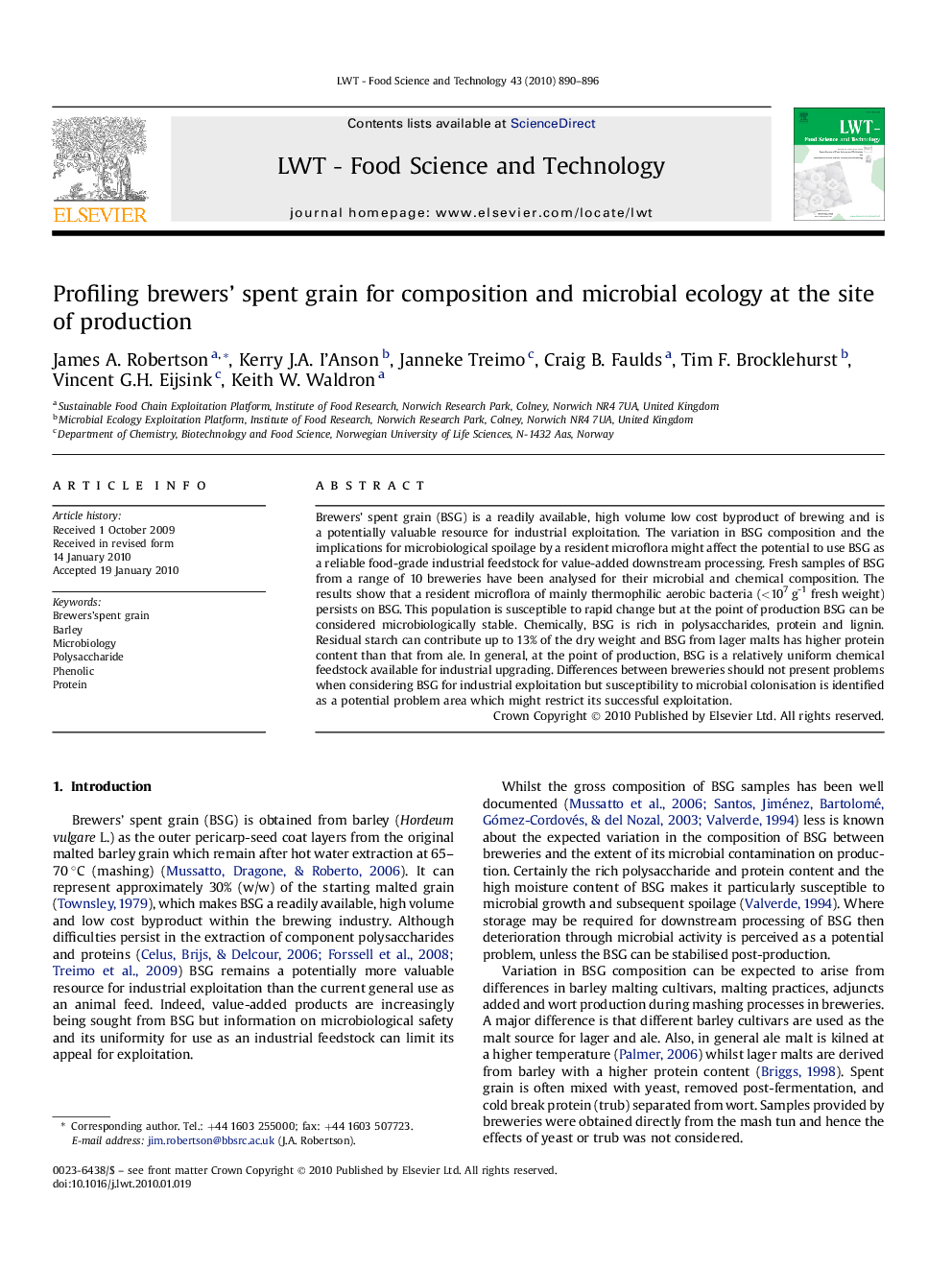| Article ID | Journal | Published Year | Pages | File Type |
|---|---|---|---|---|
| 4564454 | LWT - Food Science and Technology | 2010 | 7 Pages |
Brewers' spent grain (BSG) is a readily available, high volume low cost byproduct of brewing and is a potentially valuable resource for industrial exploitation. The variation in BSG composition and the implications for microbiological spoilage by a resident microflora might affect the potential to use BSG as a reliable food-grade industrial feedstock for value-added downstream processing. Fresh samples of BSG from a range of 10 breweries have been analysed for their microbial and chemical composition. The results show that a resident microflora of mainly thermophilic aerobic bacteria (<107 g-1 fresh weight) persists on BSG. This population is susceptible to rapid change but at the point of production BSG can be considered microbiologically stable. Chemically, BSG is rich in polysaccharides, protein and lignin. Residual starch can contribute up to 13% of the dry weight and BSG from lager malts has higher protein content than that from ale. In general, at the point of production, BSG is a relatively uniform chemical feedstock available for industrial upgrading. Differences between breweries should not present problems when considering BSG for industrial exploitation but susceptibility to microbial colonisation is identified as a potential problem area which might restrict its successful exploitation.
